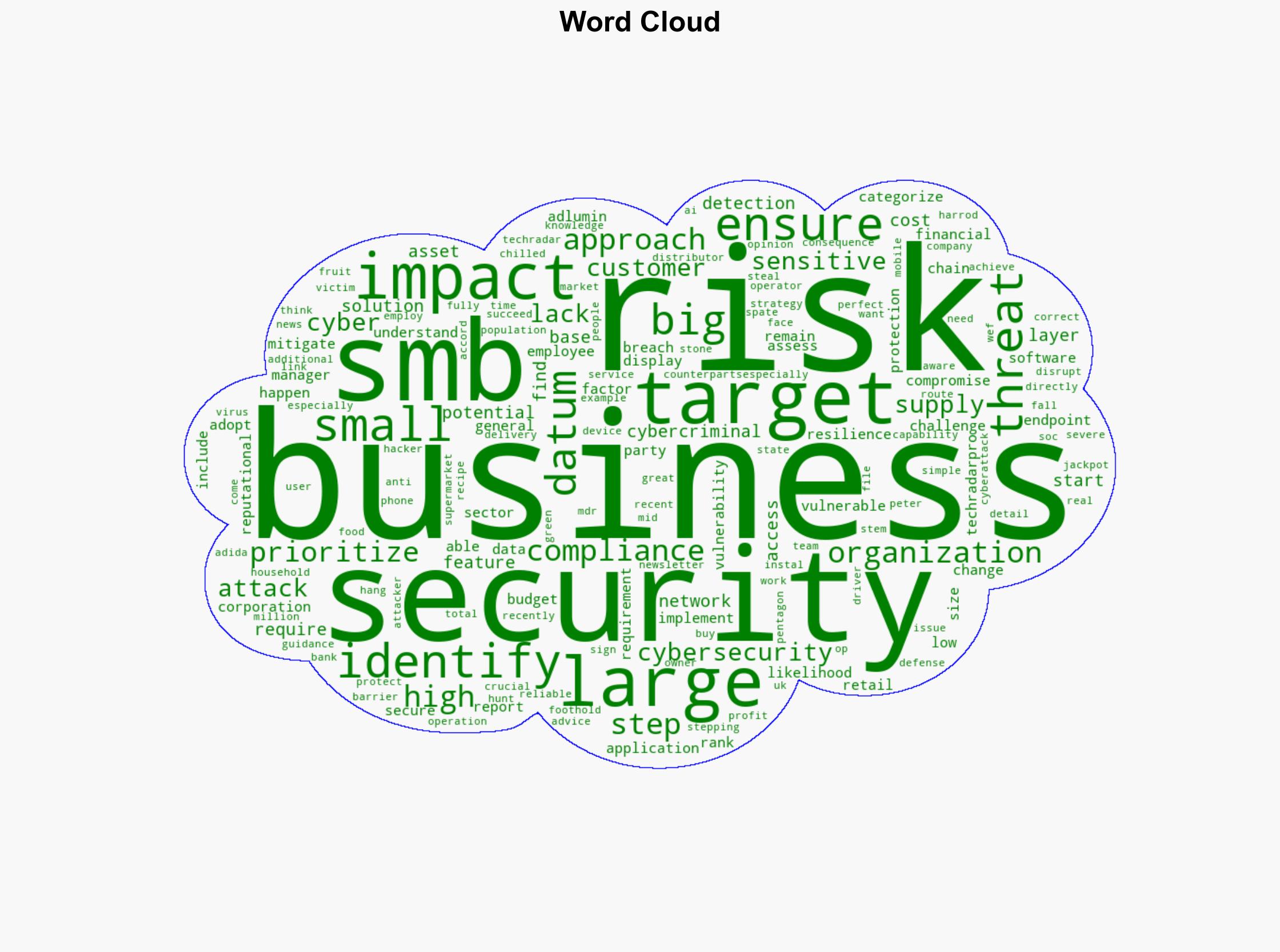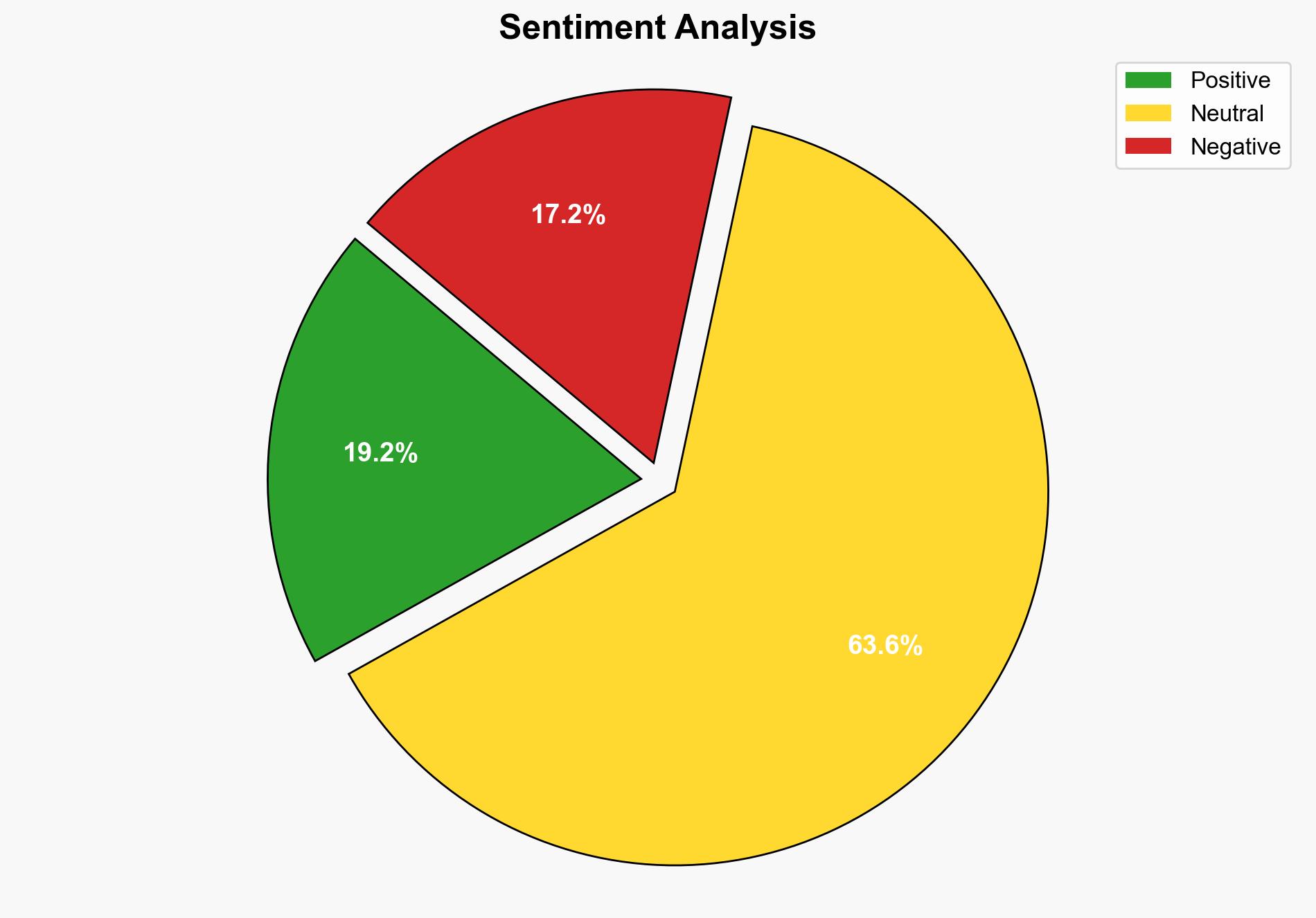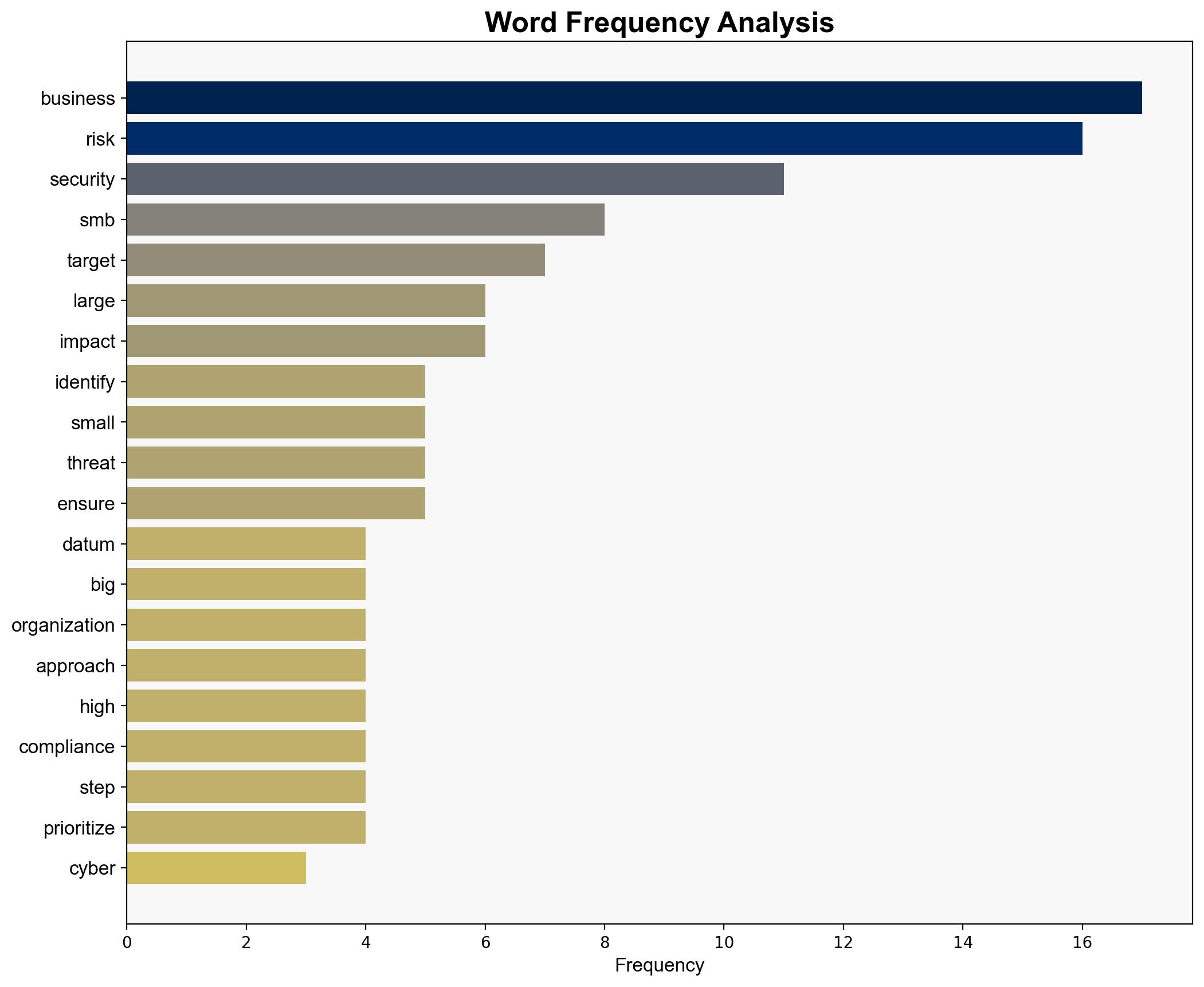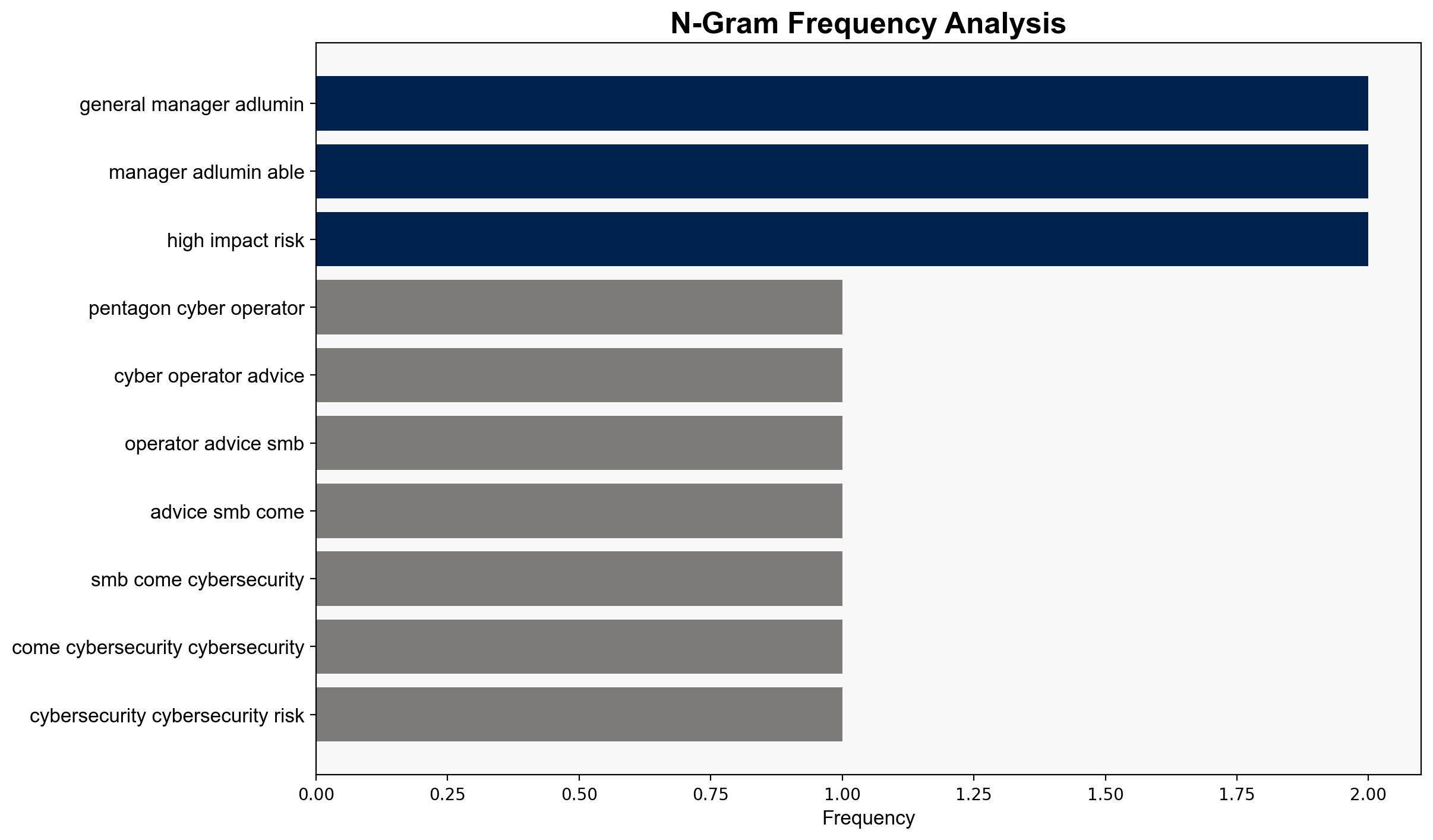I am a former Pentagon cyber operator and this is my advice to SMBs when it comes to cybersecurity – TechRadar
Published on: 2025-10-07
Intelligence Report: I am a former Pentagon cyber operator and this is my advice to SMBs when it comes to cybersecurity – TechRadar
1. BLUF (Bottom Line Up Front)
The most supported hypothesis is that small and medium-sized businesses (SMBs) are increasingly targeted by cybercriminals due to their perceived vulnerabilities and the potential for access to larger networks. This report, with a moderate confidence level, recommends that SMBs adopt a risk-based security approach, focusing on understanding and mitigating specific threats to enhance resilience and protect sensitive data.
2. Competing Hypotheses
1. **Hypothesis A**: SMBs are targeted primarily because they are seen as low-hanging fruit by cybercriminals, who exploit their lack of sophisticated cybersecurity measures.
2. **Hypothesis B**: SMBs are targeted strategically as stepping stones to larger organizations, leveraging their connections to access more lucrative data and networks.
Using the Analysis of Competing Hypotheses (ACH) 2.0, Hypothesis B is better supported due to evidence of SMBs being part of larger supply chains and the potential for attackers to gain access to significant data through these connections.
3. Key Assumptions and Red Flags
– **Assumptions**: It is assumed that SMBs lack the financial resources and knowledge to implement comprehensive cybersecurity measures. Another assumption is that cybercriminals are primarily motivated by financial gain.
– **Red Flags**: The intelligence does not account for SMBs that may have robust cybersecurity measures in place, nor does it consider non-financial motivations for cyberattacks, such as espionage or ideological reasons.
4. Implications and Strategic Risks
The targeting of SMBs poses significant risks, including potential disruptions to larger supply chains and increased vulnerability of critical sectors. If SMBs do not enhance their cybersecurity posture, there is a risk of cascading effects that could impact larger organizations and national security. The economic impact could be severe, with potential loss of trust and reputational damage.
5. Recommendations and Outlook
- SMBs should conduct regular risk assessments to identify vulnerabilities and prioritize security investments accordingly.
- Implement multi-layered security measures, including endpoint protection, real-time threat detection, and employee training to mitigate social engineering attacks.
- Scenario-based projections:
- **Best Case**: SMBs adopt comprehensive cybersecurity measures, reducing their attractiveness as targets and strengthening the overall security of supply chains.
- **Worst Case**: Continued cyberattacks lead to significant data breaches and financial losses, weakening SMBs and their partners.
- **Most Likely**: Incremental improvements in cybersecurity among SMBs, with ongoing but reduced incidents of successful attacks.
6. Key Individuals and Entities
The report does not specify individuals by name. It references entities such as the UK retail sector, Harrod, and Peter Green Chilled as examples of recent cyberattack targets.
7. Thematic Tags
national security threats, cybersecurity, counter-terrorism, regional focus




